Skoda Enyaq VS VW ID. Buzz Cargo – Specs, Efficiency & Price Comparison
Which model is the better choice – the Skoda Enyaq or the VW ID. Buzz Cargo? We compare performance (204 - 340 HP vs 170 - 340 HP), boot capacity (570 - 585 L vs ), efficiency (14.6 - 16.4 kWh vs 19.2 - 20.3 kWh), and of course, the price (38100 - 54300 £ vs 43600 - 51400 £).
Find out now which car fits your needs better!
The Skoda Enyaq ({ body-type_1}) is powered by a Electric engine and comes with a Automatic transmission. In comparison, the VW ID. Buzz Cargo (Cargo Van) features a Electric engine and a Automatic gearbox.
When it comes to boot capacity, the Skoda Enyaq offers 570 - 585 L, while the VW ID. Buzz Cargo provides – depending on what matters most to you. If you’re looking for more power, you’ll need to decide whether the 204 - 340 HP of the Skoda Enyaq or the 170 - 340 HP of the VW ID. Buzz Cargo suits your needs better.
There are also differences in efficiency: 14.6 - 16.4 kWh vs 19.2 - 20.3 kWh. In terms of price, the Skoda Enyaq starts at 38100 - 54300 £, while the VW ID. Buzz Cargo is available from 43600 - 51400 £.
Compare all the key specs now and find out which model fits your lifestyle best!
In the evolving landscape of electric vehicles, the Skoda Enyaq offers a practical yet stylish alternative to the iconic VW ID. Buzz Transporter. While the Enyaq boasts impressive range and space efficiency for families, the ID. Buzz captures attention with its retro charm and advanced tech features. Both models cater to eco-conscious drivers, but their distinct personalities highlight the versatility of the VW Group's EV lineup.
Skoda Enyaq
The Škoda Enyaq represents a bold step for the Czech manufacturer, embracing a stylish design and environmental consciousness with its electric powertrain. Inside, the cabin offers a blend of comfort and advanced technology, creating a modern driving experience. With its spacious interior and practical features, the Enyaq is perfect for families or anyone looking for a practical yet luxurious electric vehicle.
details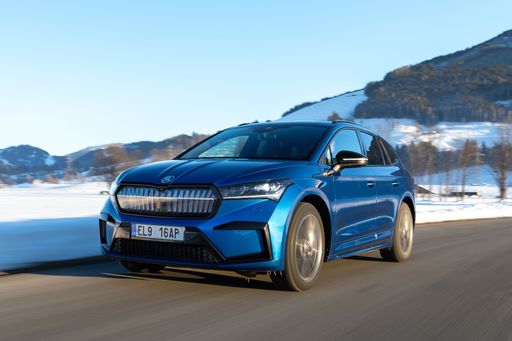 @ skoda-media.de
@ skoda-media.de
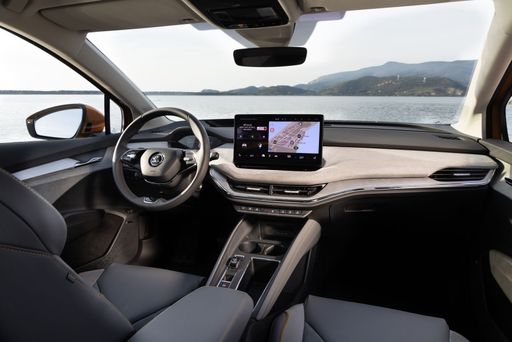 @ skoda-media.de
@ skoda-media.de
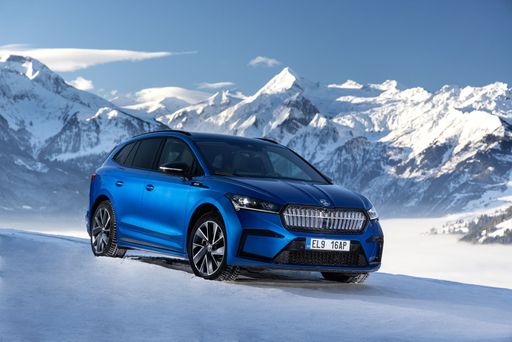 @ skoda-media.de
@ skoda-media.de
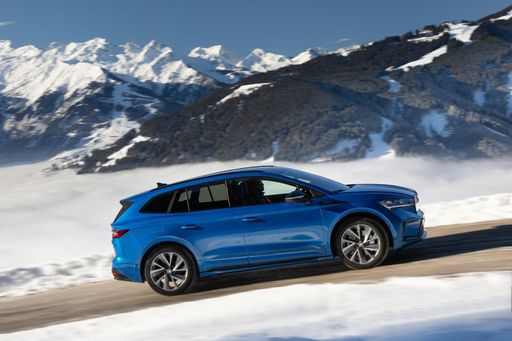 @ skoda-media.de
@ skoda-media.de
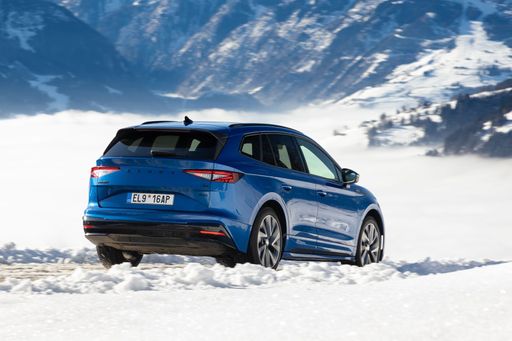 @ skoda-media.de
@ skoda-media.de
VW ID. Buzz Cargo
The VW ID. Buzz Transporter represents a bold leap into the future with its innovative electric design and retro-inspired aesthetic. Combining practicality with modern technology, it offers a spacious interior and advanced connectivity features ideal for both urban and long-distance journeys. This vehicle stands as a testament to Volkswagen's commitment to sustainability and forward-thinking mobility solutions.
details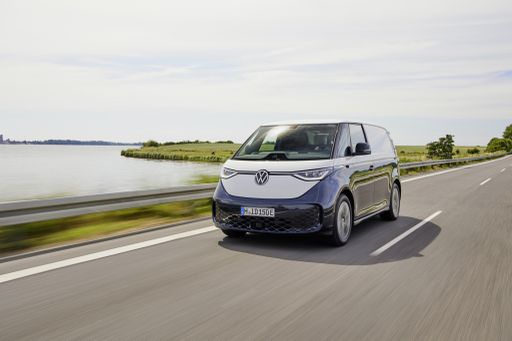 @ volkswagen-newsroom.com
@ volkswagen-newsroom.com
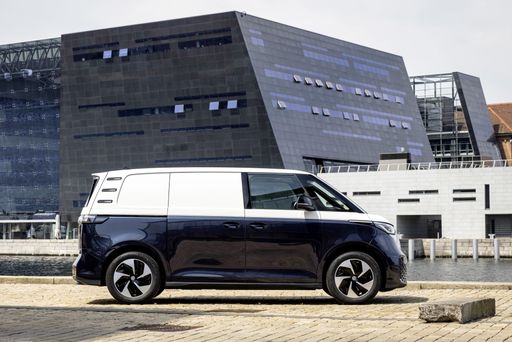 @ volkswagen-newsroom.com
@ volkswagen-newsroom.com
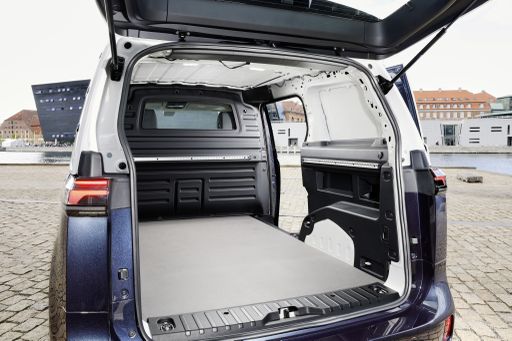 @ volkswagen-newsroom.com
@ volkswagen-newsroom.com
As the automotive industry progresses towards electrification, two standout models from Volkswagen Group have emerged as strong contenders in the electric vehicle market: the Skoda Enyaq and the VW ID. Buzz Transporter. Both vehicles embody the ethos of sustainability while catering to different segments, offering unique features and innovations. This comparison will delve into their specifications and innovations, providing an insightful overview for potential buyers.
Design and Dimensions
The Skoda Enyaq is an all-electric SUV that combines modern aesthetics with functionality. It stands at a length of 4649 mm and a width of 1879 mm, providing ample interior space for passengers and cargo alike. The Enyaq's height measures 1621 mm, giving it a robust stance on the road. In contrast, the VW ID. Buzz Transporter, a cargo van with a nostalgic nod to the classic VW Bus, is slightly longer at 4712 mm but measures wider at 1985 mm and considerably taller at 1932 mm. This design facilitates a spacious cabin, making it ideal for both transport and leisure applications.
Powertrain and Performance
Both vehicles feature electric powertrains that emphasize efficiency and performance. The Skoda Enyaq offers two power outputs, with a maximum of 340 HP and torque reaching 679 Nm. In terms of acceleration, it can sprint from 0-100 km/h in as little as 5.5 seconds, with a top speed of 180 km/h. On the other hand, the VW ID. Buzz Transporter also offers power outputs of up to 340 HP but comes with a lower maximum speed of 160 km/h. With a torque of 679 Nm, the ID. Buzz provides a smooth driving experience. While both vehicles share a similar driving configuration of either rear-wheel or all-wheel drive, the Enyaq promises a more exhilarating ride, particularly with its acceleration capabilities.
Battery Capacity and Electric Range
Battery technology is a critical factor for electric vehicles, and both the Skoda Enyaq and VW ID. Buzz Transporter come equipped with impressive battery capacities. The Enyaq houses a robust 77 kWh battery that delivers a remarkable electric range of up to 573 km on a single charge, depending on driving conditions. This substantial range makes it an excellent option for long-distance travel.
In comparison, the ID. Buzz Transporter features a slightly smaller 79 kWh battery for its higher variant but also offers a lower range of 461 km. However, the ID. Buzz’s larger battery is crucial for its utility as a cargo van, allowing for longer operational hours before needing a recharge. The slower charging rate of up to 19.2 kWh per 100 km, compared to the Enyaq, is something potential users must consider based on their usage scenarios.
Interior and Cargo Capacity
When it comes to interior space, both models are designed with practicality in mind. The Skoda Enyaq comfortably seats five passengers, with trunk capacities ranging from 570 to 585 liters, depending on the configuration. This spaciousness makes it a versatile choice for families and businesses alike.
The ID. Buzz Transporter, designed as a cargo vehicle, seats three and focuses heavily on utility. It offers a commendable payload capacity of 753 kg, making it perfect for commercial use. While its iteration sacrifices some passenger space for cargo, the trade-off caters to an audience prioritizing freight capabilities.
Innovative Technologies
Skoda has equipped the Enyaq with a host of advanced technologies focused on enhancing the driving experience. Features such as an advanced infotainment system integrate seamlessly with mobile devices, supporting connectivity and navigation for an intuitive user experience. Additionally, it offers multiple driver-assistance systems to promote safety and ease of handling.
Conversely, the VW ID. Buzz Transporter embraces a modern yet retro interior aesthetic, adorned with intuitive digital displays and smart interface controls. It also includes safety features such as adaptive cruise control and lane-keeping assist, positioning it as a futuristic vehicle ideal for urban mobility and deliveries.
Conclusion: Which One to Choose?
Ultimately, choosing between the Skoda Enyaq and the VW ID. Buzz Transporter depends on individual needs and preferences. The Enyaq is poised as a well-rounded family SUV, offering excellent range, comfort, and performance. In contrast, the ID. Buzz Transporter serves as an innovative cargo vehicle with ample space and utilitarian capabilities. Both models shine brightly in their respective categories, reflecting the commitment of their manufacturers to a sustainable automotive future.

|

|
|
|
|
Costs and Consumption |
|
|---|---|
|
Price
38100 - 54300 £
|
Price
43600 - 51400 £
|
|
Consumption L/100km
-
|
Consumption L/100km
-
|
|
Consumption kWh/100km
14.6 - 16.4 kWh
|
Consumption kWh/100km
19.2 - 20.3 kWh
|
|
Electric Range
428 - 587 km
|
Electric Range
330 - 455 km
|
|
Battery Capacity
59 - 77 kWh
|
Battery Capacity
59 - 79 kWh
|
|
co2
0 g/km
|
co2
0 g/km
|
|
Fuel tank capacity
-
|
Fuel tank capacity
-
|
Dimensions and Body |
|
|---|---|
|
Body Type
SUV
|
Body Type
Cargo Van
|
|
Seats
5
|
Seats
3
|
|
Doors
5
|
Doors
4
|
|
Curb weight
2002 - 2258 kg
|
Curb weight
2264 - 2510 kg
|
|
Trunk capacity
570 - 585 L
|
Trunk capacity
-
|
|
Length
4649 - 4658 mm
|
Length
4712 mm
|
|
Width
1879 mm
|
Width
1985 mm
|
|
Height
1620 - 1623 mm
|
Height
1932 mm
|
|
Payload
492 - 528 kg
|
Payload
640 - 753 kg
|
Engine and Performance |
|
|---|---|
|
Engine Type
Electric
|
Engine Type
Electric
|
|
Transmission
Automatic
|
Transmission
Automatic
|
|
Transmission Detail
Reduction Gearbox
|
Transmission Detail
-
|
|
Drive Type
Rear-Wheel Drive, All-Wheel Drive
|
Drive Type
Rear-Wheel Drive, All-Wheel Drive
|
|
Power HP
204 - 340 HP
|
Power HP
170 - 340 HP
|
|
Acceleration 0-100km/h
5.5 - 8.1 s
|
Acceleration 0-100km/h
-
|
|
Max Speed
160 - 180 km/h
|
Max Speed
145 - 160 km/h
|
|
Torque
310 - 679 Nm
|
Torque
310 - 679 Nm
|
|
Number of Cylinders
-
|
Number of Cylinders
-
|
|
Power kW
150 - 250 kW
|
Power kW
125 - 250 kW
|
|
Engine capacity
-
|
Engine capacity
-
|
General |
|
|---|---|
|
Model Year
2023 - 2025
|
Model Year
2024
|
|
CO2 Efficiency Class
A
|
CO2 Efficiency Class
A
|
|
Brand
Skoda
|
Brand
VW
|
Skoda Enyaq
Introduction to the Škoda Enyaq: A Leap into Electric Innovation
In the world of electric SUVs, the Škoda Enyaq stands out with its innovative approach and technical prowess. As part of the Volkswagen Group, Škoda has leveraged its rich heritage and cutting-edge technology to introduce a family of electric vehicles that promise a delightful blend of performance and sustainability.
Powerful Performance and Eco-Friendly Efficiency
The Enyaq boasts a powerful electric motor with a remarkable output of 286 PS (210 kW), ensuring agile performance while maintaining an eco-friendly footprint. It achieves an impressive acceleration, going from 0-100 km/h in merely 6.6 to 6.7 seconds, and offers a zero-emission drive, earning it a CO2-efficiency class of A.
Impressive Range and Efficient Power Consumption
The Enyaq offers an impressive electric range of 525 to 573 km, making it an excellent choice for both city driving and long-distance travel. Its efficiency is underscored by a power consumption of just 14.6 to 16.4 kWh/100 km, a testament to Škoda's commitment to sustainable engineering.
Design and Practicality: The Ideal SUV
With dimensions measuring between 4649 and 4653 mm in length, the Enyaq provides a spacious interior that comfortably seats five passengers. The vehicle's design seamlessly integrates aesthetics with functionality, offering a generous boot capacity ranging from 570 to 585 litres and a payload capacity of up to 528 kg.
Advanced Technology and Features
The Škoda Enyaq comes equipped with a state-of-the-art all-electric platform, featuring a robust 77 kWh battery that supports both rear-wheel and all-wheel drive configurations. A top speed of 180 km/h offers exhilarating performance, complemented by a sophisticated automatic transmission system.
Safety and Comfort: A Priority in Every Detail
Safety and comfort remain paramount in the Enyaq, which includes a suite of advanced driver assistance systems and an elegant interior finished with the Sportline trim. The intelligently designed suspension system ensures a smooth ride, enhanced by the quiet efficiency of its electric powertrain.
Conclusion: A Remarkable Journey into the Electric Future
Priced between €48,900 and €58,590, the Škoda Enyaq represents excellent value for money, combining remarkable performance, efficiency, and an array of features. It marks a significant step forward in Škoda's sustainable vehicle offerings, promising a brighter future for eco-conscious drivers.
VW ID. Buzz Cargo
Reimagining the Classic: The VW ID. Buzz Transporter
The automotive industry has recently been inundated with a range of electric vehicles (EVs), but few can claim a lineage as iconic as the Volkswagen ID. Buzz Cargo. A modern-day reimagining of the classic VW Microbus, the ID. Buzz Transporter seamlessly blends nostalgia with cutting-edge technology and sustainable performance.
Power Meets Precision: Performance and Efficiency
Available in multiple configurations, the ID. Buzz Transporter offers both rear-wheel drive and all-wheel drive options. The base model features an impressive 286 horsepower and a respectable electric range of 461 km, thanks to its 19.2 kWh consumption per 100 km. For those who crave more power, the all-wheel-drive model ups the ante with a thrilling 340 horsepower and a range of 432 km, facilitated by its slightly higher 20.3 kWh/100 km consumption.
Both versions rely on an efficient reduction gearbox, ensuring a smooth and automatic driving experience. The rear-wheel-drive's entry-level model provides a more accessible point for EV enthusiasts with 170 horsepower and an overall easier handling package.
The Heart of an Electric Revolution: Battery and Range
Power comes from robust battery configurations that reflect VW's commitment to sustainable performance. The ID. Buzz Transporter boasts a 79 kWh battery in its higher-end models, allowing expansive commutes or work-related travels. Meanwhile, the 59 kWh option offers a reduced footprint, without substantially compromising on performance, to align perfectly with its more entry-level 170 HP variant.
Functional Innovation: Design and Practicality
While the exterior design pays homage to its retro predecessor, the four-door ID. Buzz is all about embracing modern interior design. The cargo van accommodates up to three seats, making it not only a style statement but a practical choice for businesses needing a workhorse with a zero-emission output.
Weighing in at a curb weight range from 2264 kg to 2510 kg, depending on the model chosen, the vehicle is a testament to Volkswagen's focus on durability and reliability. Despite its weight, the ID. Buzz delivers a payload ranging from 640 kg to 753 kg, maintaining crucial cargo efficiency.
Sustainability Meets Technology: Features and Future Outlook
Volkswagen intentionally integrated forward-thinking technology into the ID. Buzz, emphasizing zero emissions with a CO2 rating of 0 g/km and maintaining an A-grade CO2 efficiency class. These advancements, paired with a maximum speed of 160 km/h and an impressive torque (ranging from 310 Nm to 679 Nm based on the selected variant), set a new standard for electric utility vehicles.
Conclusion: A Symbol of Tomorrow, Today
The ID. Buzz Transporter signifies VW's earnest step into the future while paying homage to its rich heritage. Priced between €50,825 and €59,922, the vehicle caters to a range of consumers looking for a versatile and eco-friendly solution without sacrificing quality or style. With its innovative engineering and nostalgic charm, the ID. Buzz Transporter is poised to capture the imagination of both traditional VW fans and new EV adopters in 2024.
The prices and data displayed are estimates based on German list prices and may vary by country. This information is not legally binding.
